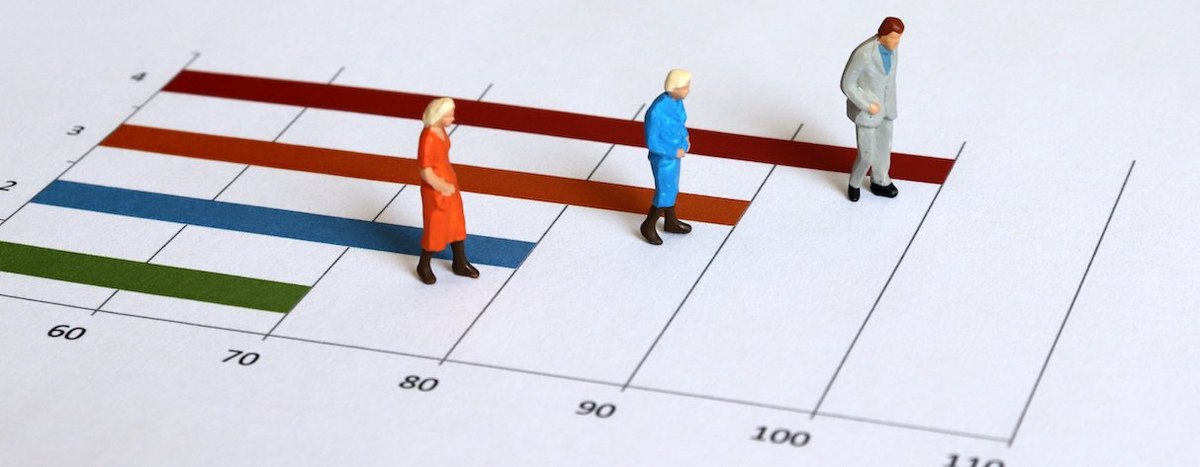Between 2019 and 2021, the United States experienced the largest two-year decline in its life expectancy in nearly 100 years. According to researchers at the Centers for Disease Control and Prevention (CDC), in 2021 the average American could expect to live until the age of 76, a significant decline from the average of 79 just two years prior in 2019. Recent polling by YouGov finds that while Americans' perceptions of life expectancy in the U.S. are moderately accurate, few are aware of how far behind the U.S. ranks relative to other wealthy countries, in terms of life expectancy as well as other health risks.
Do Americans know how long people in the U.S. are expected to live?
Americans have a good sense of their country's average life expectancy. When asked to estimate the average age a person born in the U.S. today is expected to live to, Americans provided a median response of 78, slightly higher than the life expectancy reported by the CDC of 76. (Life expectancy is calculated using current death rates, so if death rates decline then the current life expectancy will prove to be an underestimate.) Overall, a total of 24% of people accurately stated that U.S. life expectancy is within the range of 75 to 79, while 21% thought it was lower and 31% thought it was higher. One in four (24%) said they weren't sure.
How long do Americans think they personally will live?
When asked to give us a number, the median age Americans said they expected themselves to live to is 82 years — 6 years higher than estimates of U.S. life expectancy at birth, though life expectancy for people who have reached an older age is higher, on average.
Americans are divided as to whether their generation will live longer or shorter lives than the generation before them: 30% say they'll live longer lives, 22% say they'll live shorter lives, and 31% say they'll live about as long. Americans feel similarly about the generation after theirs: 29% say they'll live longer lives than the current generation, 23% say they'll live shorter ones, and 28% say they'll live the same length.
Do Americans know what the leading causes of death are in the United States?
When asked to identify the top three causes of death in the U.S., as reported by the CDC in 2020, from among a list of the 10 leading causes, many Americans are successful in doing so. Around two-thirds of people correctly include the two leading causes of death in their responses: heart disease (66%) and cancer (65%). Around half as many (36%) accurately include COVID-19, which is estimated to be the third leading cause of death in the U.S. in 2020. When asked to choose which one of the three causes they think are the leading causes of death is the top cause of death, 42% correctly say heart disease, while 17% say cancer and 19% say COVID-19.
How does life expectancy vary across demographic groups?
Life expectancy in the U.S. varies across demographic groups. In the U.S. today, a newborn girl is expected to live an average of 79 years, six years longer than newborn boys, who are expected to live to 73. Two-thirds of Americans (67%) are aware that women tend to live longer than men, while 15% say there is no difference between the sexes; only 6% say men live longer.
The CDC estimates that white Americans are expected to live to age 76, five years longer on average than Black Americans, who have a life expectancy of 71. When asked which race has a longer life expectancy, 60% of Americans accurately say white Americans, while 20% say there is no difference; only 5% incorrectly say Black Americans live longer, on average.
One fact that would surprise many Americans is that immigrants in the U.S. live longer, on average, than native-born Americans. In our survey, only 14% of people answered this question correctly by stating that foreign-born Americans live longer than native-born ones, while 30% said there is no difference in life expectancy between foreign- and native-born Americans; one in four (25%) incorrectly thought that native-born Americans live longer.
How does life expectancy and health care in the U.S. compare to other countries?
Do Americans know how U.S. life expectancy stacks up to other countries around the globe? The poll asked Americans whether 20 countries have higher, lower, or about the same life expectancies as the U.S. Many people (48%) correctly acknowledge that U.S. life expectancy is lower than Japan's, where people live an average of 85 years, but few are aware that several other countries — including Australia, South Korea, Israel, Italy, Canada, Germany, the UK, and Cuba — all surpass the U.S. in terms of life expectancy, according to estimates from the World Bank based on 2020 figures, which show the figure for the U.S. is 77.
Based on the poll's findings, a significant share of people would also be surprised to learn that the U.S. has a similar rather than higher life expectancy than China, Algeria, and Iran. Many Americans are correct, however, in saying that certain countries – Iraq, Russia, the Philippines, India, Afghanistan, and Nigeria – have lower life expectancies than the U.S.
Compared to people in other wealthy countries around the globe, Americans face unique health risks. Most Americans are aware that the U.S. has higher rates of obesity (75% say the U.S. rate is higher), opioid addiction (65%), and gun violence (63%) than other well-off countries. Fewer (49%) know that the U.S. is a leader in suicide rates compared to other Organisation for Economic Co-operation and Development (OECD) countries. Only 44% know that the U.S. beats out nearly all other wealthy countries in terms of road accidents. Even fewer – 39% – are aware that the U.S. has one of the highest rates of chronic disease relative to other wealthy countries. Only one in three (31%) know that the U.S. has a higher rate of COVID-19 infection. Although cancer is less common in the U.S. than in most of Europe, 42% think cancer rates are higher here than in other places; only 4% know that cancer rates are lower in the U.S.
How do Americans think the U.S. health care system stacks up to other wealthy countries? Nearly half of Americans (46%) accurately believe the U.S. spends more on health care than other rich countries do, while 26% believe it spends less and 16% think it spends about the same. Many don't see the U.S.'s spending as paying off: Only 24% of people say that the U.S. has a better health care system than other well-off countries, while 43% say it's worse and 21% say it's about the same. Even fewer Americans – 17% – think the U.S. has a fairer health care system than other wealthy countries; nearly half (48%) say our health care system is less fair, and 22% say it's equally as fair.
— Carl Bialik and Linley Sanders contributed to this article.
This poll was conducted on September 12 - 15, 2022, among 1,000 U.S. adult citizens. Explore more on the methodology and data for this poll.
Image: Adobe Stock (Hyejin Kang)












